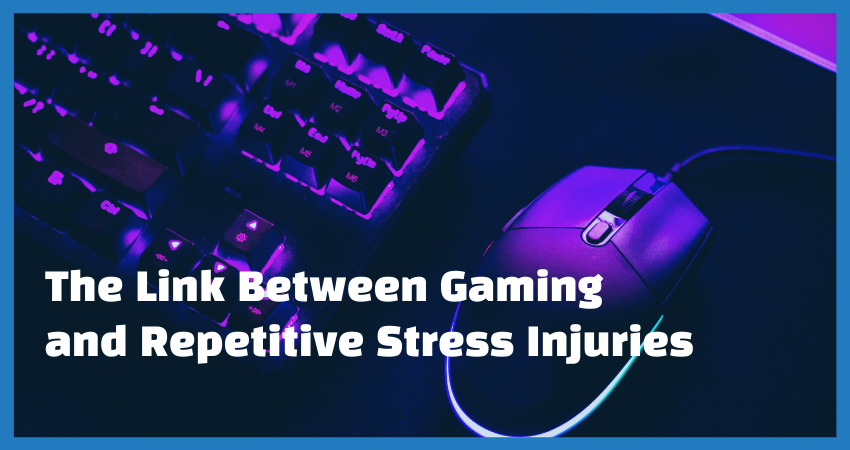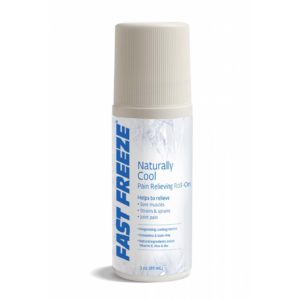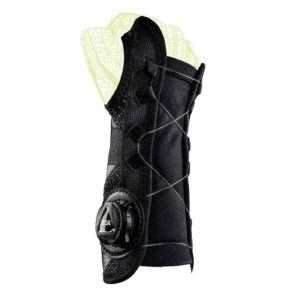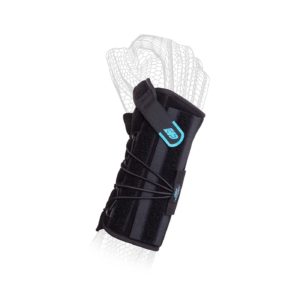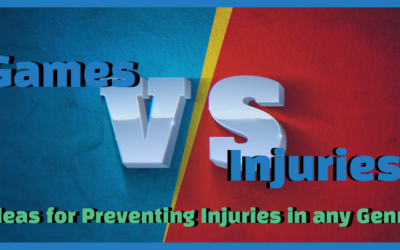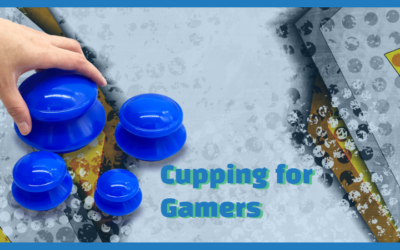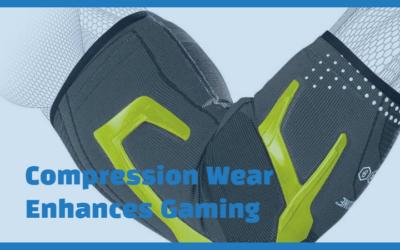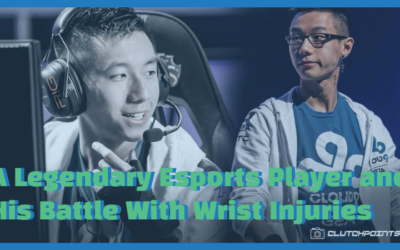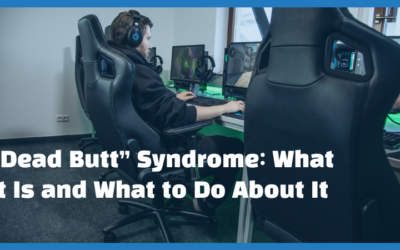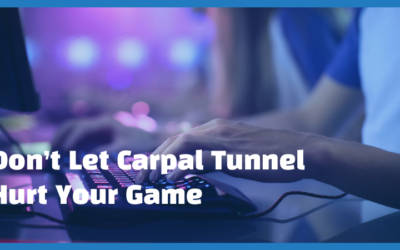Most avid gamers or eSports competitors spend up to 14 hours a day, six days a week using devices that require rapid, precise hand movements. This means that the average gamer or eSports professional may at one time or another experience a repetitive stress injury. This type of injury refers to pain in the muscles, tendons, or nerves of a joint that has become strained due to repetitive movements [1]. The hands, wrists, forearms, shoulders, elbows, and neck are most commonly affected by repetitive stress injuries. People may experience symptoms like pain, swelling, inflammation, muscle strain, or tissue damage. This kind of overuse injury typically affects young adults and is more common in women than men [2]. PC gamers tend to experience frequent problems in their wrists, while console gamers often develop discomfort in their thumbs.
Repetitive stress injuries that are especially common among gaming professionals include [1-4]:
- Gamer’s thumb (De Quervain’s Tenosynovitis) – This overuse injury develops when tendons in the wrist and lower region of the thumb become inflamed.
- Trigger Finger – A condition where one finger becomes stuck in a bent position and abruptly snaps back into a straightened position due to an inflamed tendon in the affected finger.
- Tendonitis of the wrist – Pain that develops in the wrist when tendons become inflamed due to overuse.
- Tennis elbow – Also known as mouse elbow or lateral epicondylosis, tennis elbow is an injury that often affects PC gamers. It develops as a result of repeatedly clicking a mouse. This repetitive action irritates muscles that extend from the fingers to the wrists, forearms, and elbow.
- Carpal tunnel syndrome – An overuse injury caused by abnormal pressure placed on the main nerve in the wrist after repeatedly performing the same movement.
- Cubital tunnel syndrome – A condition that develops when excess pressure on nerves in the elbow cause pain in the fingers, wrist, and forearm.
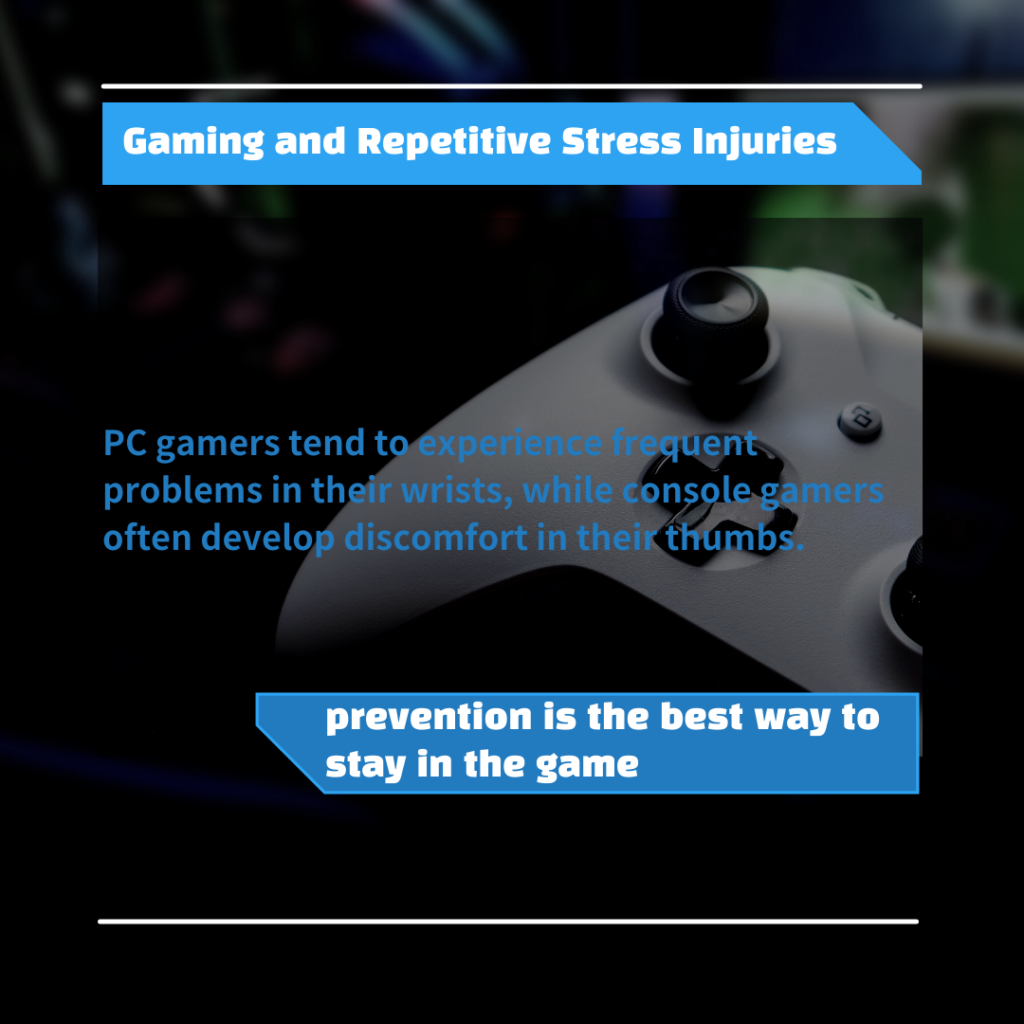
The most common signs of a repetitive stress injury include pain, burning or tingling, and numbness in the affected area. Muscle weakness, stiffness, decreased mobility, and cramping may develop as well. Gamers may subsequently struggle to maintain peak performance or have to discontinue gaming for certain periods of time due to these types of symptoms. These types of complications are particularly problematic for those who engage in gaming professionally.
A minor repetitive stress injury may be treated by using nonsteroidal anti-inflammatory drugs (NSAIDs) like ibuprofen or aspirin, frequently resting the joint by taking gaming breaks, or wearing a brace [5]. However, individuals may develop long-term complications if a prolonged injury is not properly treated. More specifically, if conventional methods (e.g., NSAIDs, rest, braces) are ineffective or the injury becomes recurrent, this indicates that it’s time to speak with a healthcare professional who can discuss a beneficial approach that supports the healing process. Techniques that may help prevent this type of injury from occurring in the future can also be discussed with a specialist, like a physical therapist.
The main goal of any form of treatment is to promote complete healing and prevent this type of injury from happening again. Useful preventive strategies that are quite effective include placing the hands and wrists in neutral positions, taking frequent breaks, performing exercises that stretch and strengthen muscles, and wearing a brace if long hours of gaming are anticipated [1-5]. Overall, prevention is the best way to stay in the game.
References
- Helliwell PS, Taylor WJ. Repetitive strain injury. Postgrad Med J. 2004;80(946):438-43.
- Breslin CF, et al. The demographic and contextual correlates of work-related repetitive strain injuries among Canadian men and women. Am J Ind Med. 2013;56(10):1180-9.
- Ratzlaff CR, Gillies JH, Koehoorn MW. Work-related repetitive strain injury and leisure-time physical activity. Arthritis Rheum. 2007; 57(3):495-500.
- van Tulder M, Malmivaara A, Koes B. Repetitive strain injury. Lancet. 2007; 369(9575):1815-22.
- Tjepkema M. Repetitive strain injury. Health Rep. 2003; 14(4):11-30.

